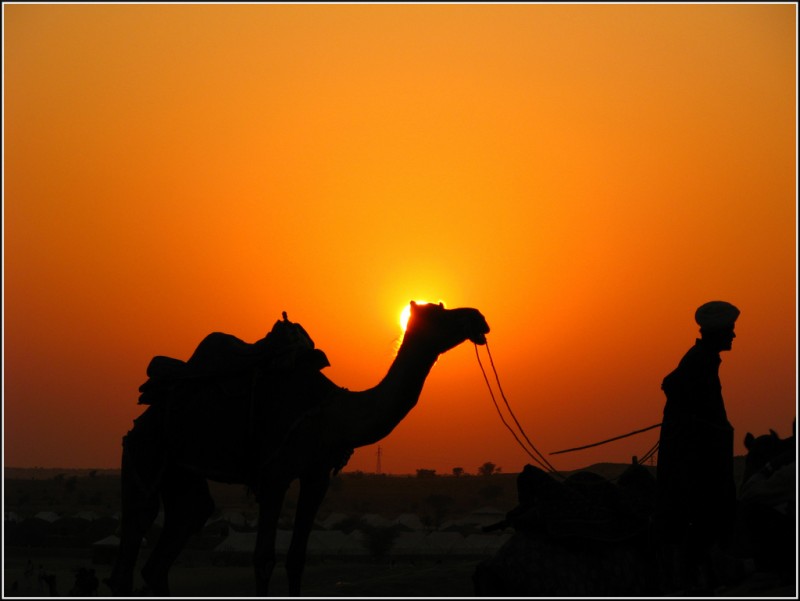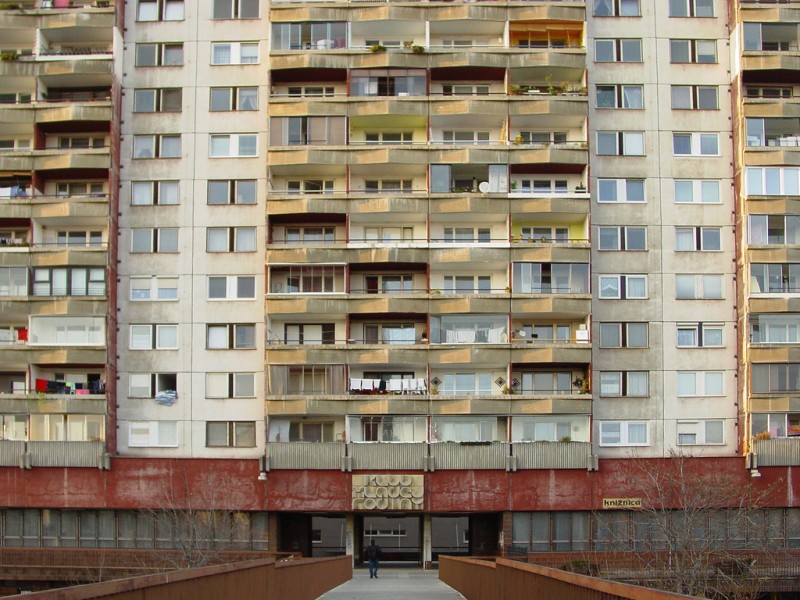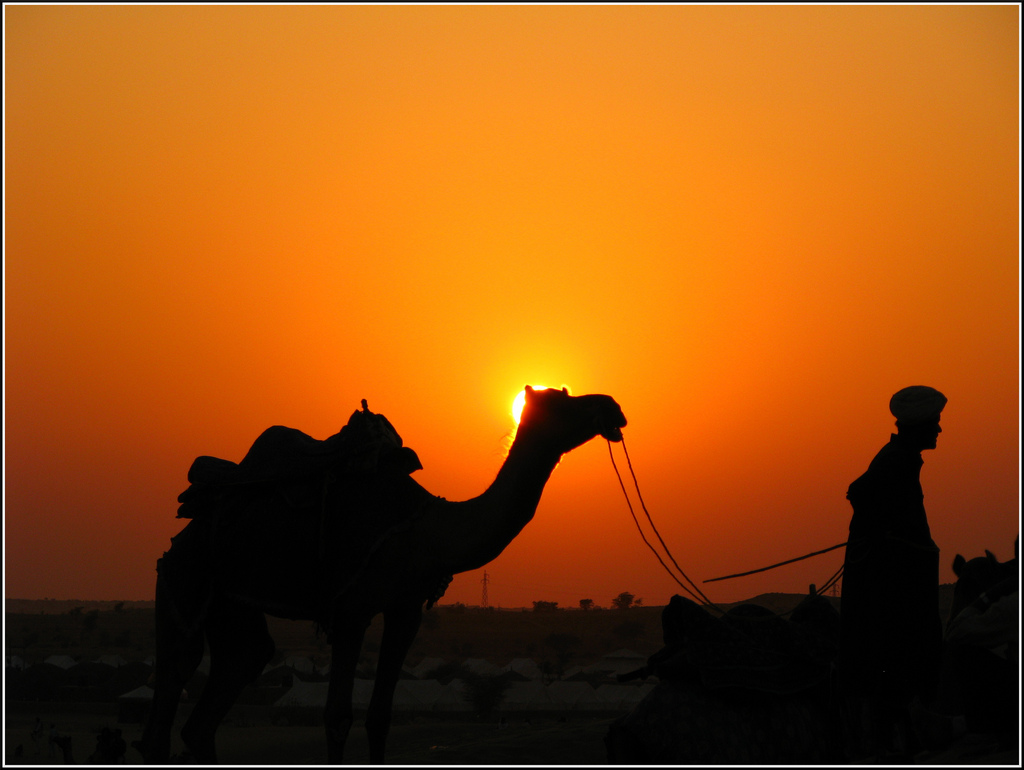No matter who you talk to and about what subject, everyone has their own unique perspective, and this is even more true when we’re talking about travel. Like almost everyone, I know I’m sometimes guilty of assuming that my personal perspective is not only right but maybe even the only one; but then during my travels I’m constantly reminded that there are so many different ways to look at the same issue.
Vagabondish is reader-supported. When you buy through links on our site, we may earn a small affiliate commission. Read our disclosure.
These issues might be as simple as whether or not you enjoy traveling, or as complex as what kind of government is the right one, or anything in between. As much as I can, I try to appreciate every perspective and learn something from them. Here are a few examples …

Man & Camel in Sam Desert Jaisalmer, Rajasthan, India © Manoj Vasanth
A Tunisian Camel Guy
I was recently reminded of an incident that took place in Douz, on the edge of the Sahara Desert in central Tunisia. The annual Sahara Festival was in full swing and camels were on everyone’s minds. At the hostel where I was staying, I chatted with a Tunisian who was interested in my home country, Australia. He told me he’d heard that we have a huge number of wild camels there (later, I discovered Australia’s the only place with wild camels wandering around). “So nobody owns them?” he’d asked me. No, I’d replied, not really wanting to tell him they were actually a bit of a pest. “So anybody could just go out into the desert and find a camel and take it home?”
Inside, I laughed, but outside, I realised this was one of those moments where perspective is everything: his and mine came from completely different life experiences. To him, a camel was a valuable commodity, and the thought of all these owner-less camels running around out there made him giddy. To me, a camel was an imported pest causing problems for our outback flora and fauna. It was a good, if eye-opening, lesson.
A Two-Year-Old
Kids, of course, have an entirely different viewpoint to ours, and I often find myself thinking it’s a shame that they ever need to grow up and start to think like adults. Young children in particular have no built-in censor for what they say, and will blurt out exactly what comes into their heads. Take a two-year-old traveling and you will immediately get a vastly new perspective on the world.
As a quick example: I took my young son on a visit to the state parliament building. It was quite a formal occasion, and we met the minister for children among other dignitaries. I was thrilled when we got a personal tour through the chambers of parliament and got to wander the corridors where many important people have walked before. I didn’t expect my two-year old son to have any understanding of the function of the parliament, but I did think he might be impressed by the big leather chairs, the stained glass windows and the size and scale of the building. I asked him on the way home what he remembered most about going to the parliament building. Without hesitation, he answered, “They have blue garbage cans!” Yep, that’s what was most important to him. Perspective!

Bleak Bratislava © David Evers
A Slovak Who Grew Up Under Socialism
I was truly fascinated by the experiences of people I met in eastern Europe and Russia who were around my age and now living in a free country but had grown up under the restrictions of socialism. When it seemed appropriate, I would ask question after question about the special shops that sold denim jeans, the way that jobs and apartment allocations were decided, about the reality of queuing up for food.
Beneath all of my questions was the basic assumption that the way of the Western world was definitely superior to socialism. Who would want to live in a country which wouldn’t allow you to travel freely to other places, for example?
But when I lived and worked in Bratislava, I talked to numerous Slovaks, both my age and older, who reiterated the same sentiment: there were lots of things about the old way that they preferred. Our version of “freedom” was not always easier than their experiences under socialism. So many people who I got to know well told me this kind of thing that I really had to stop and examine my own flawed perspective on the issue.
A Korean Who’s Very Skinny
There’s another different perspective which has caught me out on numerous occasions while traveling in both Japan and Korea (and I wonder if it’s even more widespread than that?). At first, I was a bit shocked and insulted but I soon realised that from their perspective, it was a fairly natural thing to say: I’m talking about the moment when a Korean I met told me I was fat!
I soon realised that from their perspective, I was obviously heavier than them (and this was back in my relatively skinny days!). On top of that, they were not brought up to think that saying something like this could be insulting — it was simply a fact. Over the years both Korean and Japanese students and friends of mine have made other comments to me about my personal appearance, the kind of statements we Westerners would never make to each other, but which from their perspective seemed perfectly okay.
So, Stop and Consider Perspectives
The lesson from these four people and hundreds of others I’ve met on my travels is simple: stop and consider the perspective of the person telling you something before you make a judgement about them. This is true of life in general but even more so when you’re talking to people of different cultures and backgrounds. Perspective is everything.


